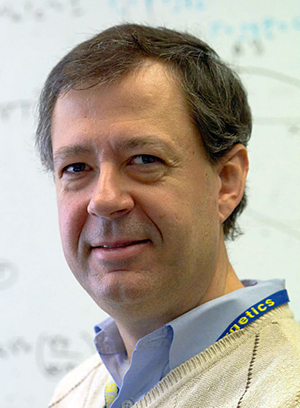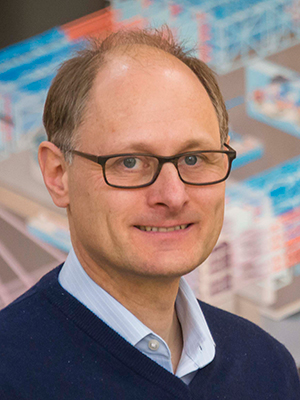Two University of Rochester pioneers of “shock ignition”—Riccardo Betti and Wolfgang Theobald – are among the recipients of this year’s Lev D. Landau and Lyman Spitzer Jr. Award for Outstanding Contributions to Plasma Physics.


The award, bestowed every two years by the respective plasma physics divisions of the American and European Physical Societies, recognizes researchers who not only advance their scientific field, but also promote collaboration and unity between US and European scientists.
This year’s award—“for major advancements of the shock ignition concept through collaborative experimental and simulation efforts in inertial confinement fusion research”—will also be presented to Alexis Casner and Xavier Ribeyre of the Center for Intense lasers and Applications at the University of Bordeaux, France.
“This prestigious international award again shows the outstanding research conducted at the University’s LLE and the quality of our scientists,” says Michael Campbell, director of LLE. “It also highlights our commitment to developing impactful collaborations with other world leading institutions and scientists. The award also reflects the growing international interest in inertial fusion and high energy density physics research. All of us at LLE congratulate Wolfgang, Riccardo, Alexis and Xavier for this wonderful achievement.”
Shock ignition is an advanced approach in the decades-long quest to supply energy with electricity generated from controlled thermonuclear fusion.
One approach pursued at LLE—inertial confinement fusion—concentrates converging beams of powerful lasers on a small fuel pellet containing the heavy isotopes of hydrogen, deuterium, and tritium, causing the target to implode and ignite. During shock ignition the laser pulse is formed in such a way that at the end an intense laser spike launches a strong shock wave into the imploding capsule, which leads to ignition.
Betti, LLE’s chief scientist and the Robert L. McCrory Professor in the Department of Mechanical Engineering and in the Department of Physics and Astronomy, has spoken to Congress about next-generation fusion energy research. He is a fellow of the American Physical Society, recipient of the US Department of Energy’s Ernest O. Lawrence Award for “a series of impactful theoretical discoveries in the physics of inertial confinement fusion” and the Edward Teller Medal from the American Nuclear Society “for seminal contributions to the theory and understanding of hydrodynamic instabilities, implosion dynamics and thermonuclear ignition in inertial confinement fusion.”
Theobald, a senior scientist at LLE, is a member of the Omega Experiments group. He was elected a fellow of the American Physical Society in 2018 for “pioneering experiments and seminal contributions in suprathermal electron generation and transport in laser-driven inertial confinement fusion plasmas including fast-ignition and shock ignition implosions.”


